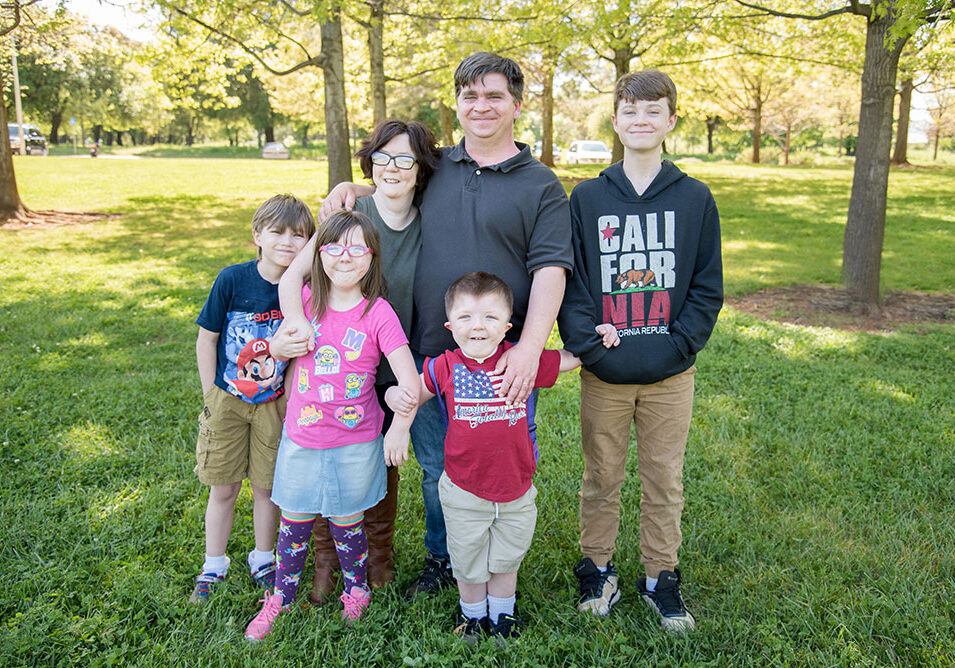How to Choose the Best Diapers for Your Baby and the Environment
With the arrival of a new baby comes many challenging choices—co-sleep or crib, bottle, or breast. Cloth or disposable diapers?
Your diaper choice can impact both your family’s health and the environment, so it is important to evaluate the many benefits of choosing organic cloth diapers for your little one. Although each diaper option comes with its pros and cons, cloth diapers offer advantages by minimizing environmental harm, reducing health impacts, and saving money.
Environmental Impact
Compared to disposable diapers, the top reason to choose cloth diapers is their eco-friendliness. Disposables use more raw materials to make, contain harsh chemicals, create more waste, and degrade very slowly. Americans throw away about 20 billion disposable diapers each year, creating 3.5 million tons of waste that aren’t recycled or composted. That translates to more than 2 tons of waste per child! Unfortunately, studies show that diapers in landfills take up to 500 years to degrade.
Chemicals are a big problem for disposable diapers. The manufacturing process uses volatile chemicals that can end up in the ecosystem. The Real Diaper Association (realdiapers.org) explains that disposable diapers contain ingredients that could harm animals, humans, and the environment. As the diapers sit for years in the landfill, they can leach dangerous chemicals into the soil and water, while also creating methane and other toxic gasses. There is also concern about the human feces in each diaper as it sits decomposing for years. According to the U.S. Environmental Protection Agency, disposable diapers introduce pathogens into the environment from the solid waste they contain that could seep into the water source, potentially polluting drinking water.
We can’t forget about our precious trees. Disposable diapers attribute to the loss of approximately 200,000 trees each year in the United States alone.
Health Concerns
The materials used to make disposable diapers cause health issues. Many traditional diaper brands contain chlorine, latex, perfumes, and dyes that can cause skin irritations and rashes. More seriously, studies have found that being exposed to chlorine for an extended period can cause cancer. Next, the wood pulp core of diapers is bleached with chlorine, a process that contaminates the end-product with dioxins, which are highly toxic and carcinogenic. Finally, disposable diapers generate emissions that your baby can inhale and trigger asthma.
Cost Savings
Another huge benefit of using cloth diapers is the cost savings. Disposable diapers can start to add up. On average, children will require about eight diapers per day from the time they are born until they are potty trained. That is a total of 8,000 to 10,000 diapers! That cost comes out to an average of $4,000 per child over two years.
On the other hand, the cost of using cloth diapers and laundering them yourself is between $800 and $1,100 over three years, which is a huge saving. The other great news is that you only need to purchase the cloth diapering system once because you can reuse it for your next child. Then when you are done, simply donate them to a cloth diaper bank.
Just be cautious when choosing a brand of cloth diapers because there are many choices on the market today. Unfortunately, not all manufacturers create cloth diapers with the same standards in mind. According to Darci Crossin of Apple Blossom Baby in Chico, CA, “There are many cloth diapers on the market that work wonderfully, but with the rise in popularity, we have also seen a rise in cheap brands that don’t hold up or hold in. This can lead to more expense, more frustration, or even a switch back to disposables. It’s important to pick a reputable brand of high quality. Fortunately, there are great options at every price point.”
How to Address the Biggest Con: Energy Consumption
The biggest challenge with cloth diapers is that they require a large amount of energy to wash and dry them. However, the following tips will help ensure that you stay as eco-friendly as possible when choosing cloth diapers.
- Choose energy-efficient appliances such as those labeled with the ENERGY STAR logo. Clothes washers with this logo use 25% less energy and approximately 33% less water than standard models, and the dryers use about 20% less energy.
- Air-dry the diapers with a dehumidifier instead of using the dryer.
- Purchase a small portable washing machine to wash one day’s worth of cloth diapers. You only need to add 1-2 gallons of water for one load compared to the 50 needed for a full-sized washer.
- Avoid using a cloth diaper cleaning service since the transportation involved uses large amounts of energy, and you do not have control over the type of washer and dryer units they have.
Posted in: Community
Comment Policy: All viewpoints are welcome, but comments should remain relevant. Personal attacks, profanity, and aggressive behavior are not allowed. No spam, advertising, or promoting of products/services. Please, only use your real name and limit the amount of links submitted in your comment.
You Might Also Like...
Soaring with Eagle Scouts
Commitment and dedication are traits that you might expect to find in an Eagle Scout, but Ron Zufall has taken those traits to another level with his 41-year relationship with […]

Celebrating Our Differences
A Mother’s Perspective How the Movie “Wonder” Sheds Light on Our Family’s Reality RJ Palacio wrote her bestselling novel Wonder after an encounter at a local ice cream shop. She and her […]
Cooperative Preschools Help Families Start School Together
For more than 50 years, parents in Redding and Paradise have formed two cooperative preschools, an arrangement in which parents collectively hire a trained teacher to provide their children with […]

Host a Successful Yard Sale this Summer
Everything You Need to Know to Get Rid of Unwanted Stuff Is your garage, basement or closet overflowing from the heaps of stuff you’ve been saving? Do you rationalize this […]


